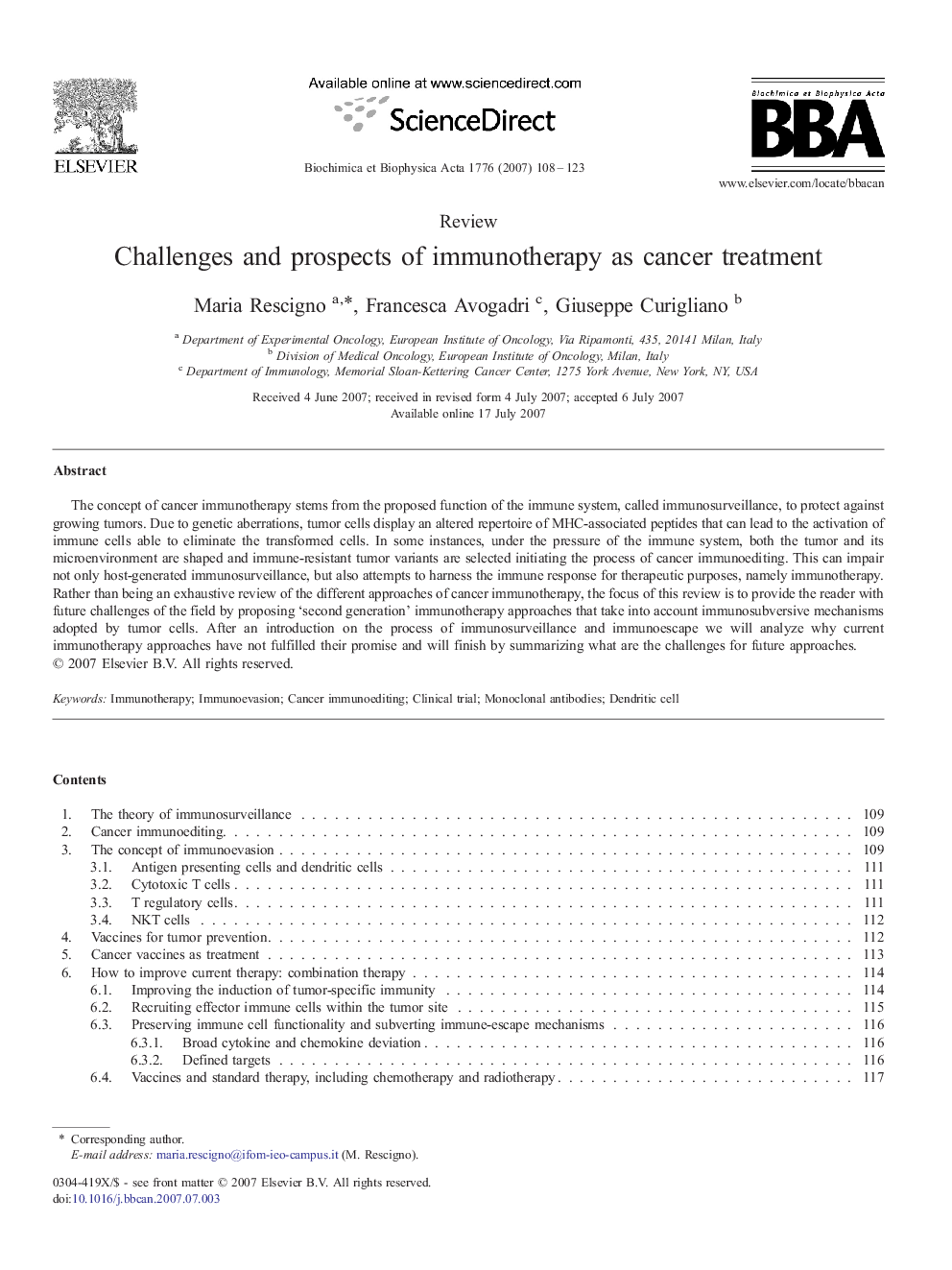| Article ID | Journal | Published Year | Pages | File Type |
|---|---|---|---|---|
| 10895644 | Biochimica et Biophysica Acta (BBA) - Reviews on Cancer | 2007 | 16 Pages |
Abstract
The concept of cancer immunotherapy stems from the proposed function of the immune system, called immunosurveillance, to protect against growing tumors. Due to genetic aberrations, tumor cells display an altered repertoire of MHC-associated peptides that can lead to the activation of immune cells able to eliminate the transformed cells. In some instances, under the pressure of the immune system, both the tumor and its microenvironment are shaped and immune-resistant tumor variants are selected initiating the process of cancer immunoediting. This can impair not only host-generated immunosurveillance, but also attempts to harness the immune response for therapeutic purposes, namely immunotherapy. Rather than being an exhaustive review of the different approaches of cancer immunotherapy, the focus of this review is to provide the reader with future challenges of the field by proposing 'second generation' immunotherapy approaches that take into account immunosubversive mechanisms adopted by tumor cells. After an introduction on the process of immunosurveillance and immunoescape we will analyze why current immunotherapy approaches have not fulfilled their promise and will finish by summarizing what are the challenges for future approaches.
Keywords
Related Topics
Life Sciences
Biochemistry, Genetics and Molecular Biology
Cancer Research
Authors
Maria Rescigno, Francesca Avogadri, Giuseppe Curigliano,
